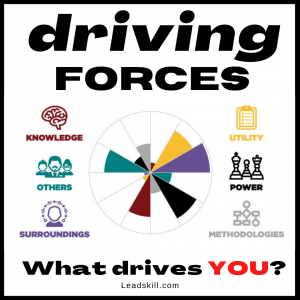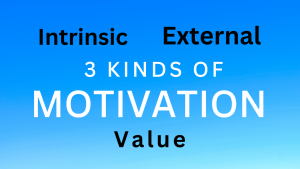“What matters to you? Can we talk about it?” The answer to both questions depends first on whether I think you are a “friendly” or if there is a level of danger for me to open up to you. If we have a basic level of trust, we can have a good conversation about matters.
I Know the Answer Already
Every manager has a theory of human behavior and motivation, even if they can’t explain it in words. Have you ever worked for a manager who had a too simple explanation for what drives people?
Here’s a common one: “People are driven by money, plain and simple.” Or how about this one: “We’re all looking out for ourselves at the end of the day.”
Is there truth in these beliefs? Of course.
Is that all the truth? Of course not, but if we haven’t really examined our beliefs and challenged these assumptions, we will keep operating from our personal theory of human behavior and motivation.
We’re talking about what really matters to another person
What Really Matters?
Let’s be clear. We aren’t having a conversation about ultimate or universal truth. We’re talking about what matters to an individual.
We may share some overlapping concerns, but assuming that what matters most to me is also what matters to you is foolish.
One of the challenges leaders face is tapping into the magical force of what motivates or drives people they manage. How do you discover that?
The answer is disarmingly simple, but also tricky. Have a conversation about it, that’s the simple part. What makes it tricky is making sure there is enough trust to have a real conversation.
Having the Conversation about What Matters-Topics
You might have to work on trust-building before you can have this conversation. That’s okay. Assuming you have a level of trust, what do you do next?
Share something personal first—open up. Be vulnerable yourself, and invite the other person to be open. Sharing a brief personal story can be a powerful way to connect.
Ask some questions that make exploration okay. “What are you driven by?” is direct, but might not be the first question to raise. Explore free-time pursuits or interests outside of work. If there are no current free-time pursuits, what did they once enjoy doing before they started working? Alternatively, what do they hope to do after the busy part of their career is past?
What we’re looking for is the answer to the question “What seems to attract your interest, energy and/or time?”
Having the Conversation about What Matters-Timing
The right time to have these conversations often seems like the worst time.
Here’s what I mean. When we have to make tough choices, or when situations are really challenging, what really matters to us often comes to the surface.
But we also feel vulnerable at these times. And the press of the situation makes deep conversation difficult or impossible.
That might be the signal that this is exactly the right time to have a conversation that really matters.
One tool that really helps with these conversations is the 12 Driving Forces assessment. You can find out more about it here.




